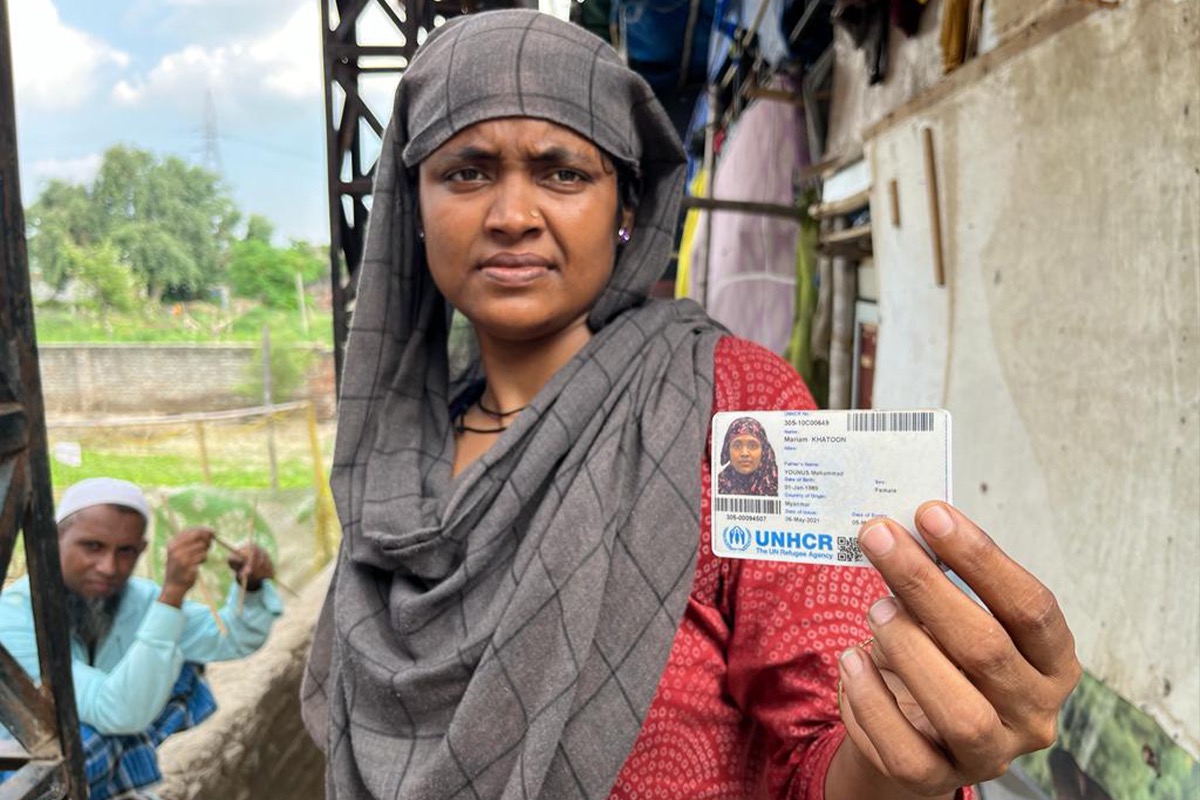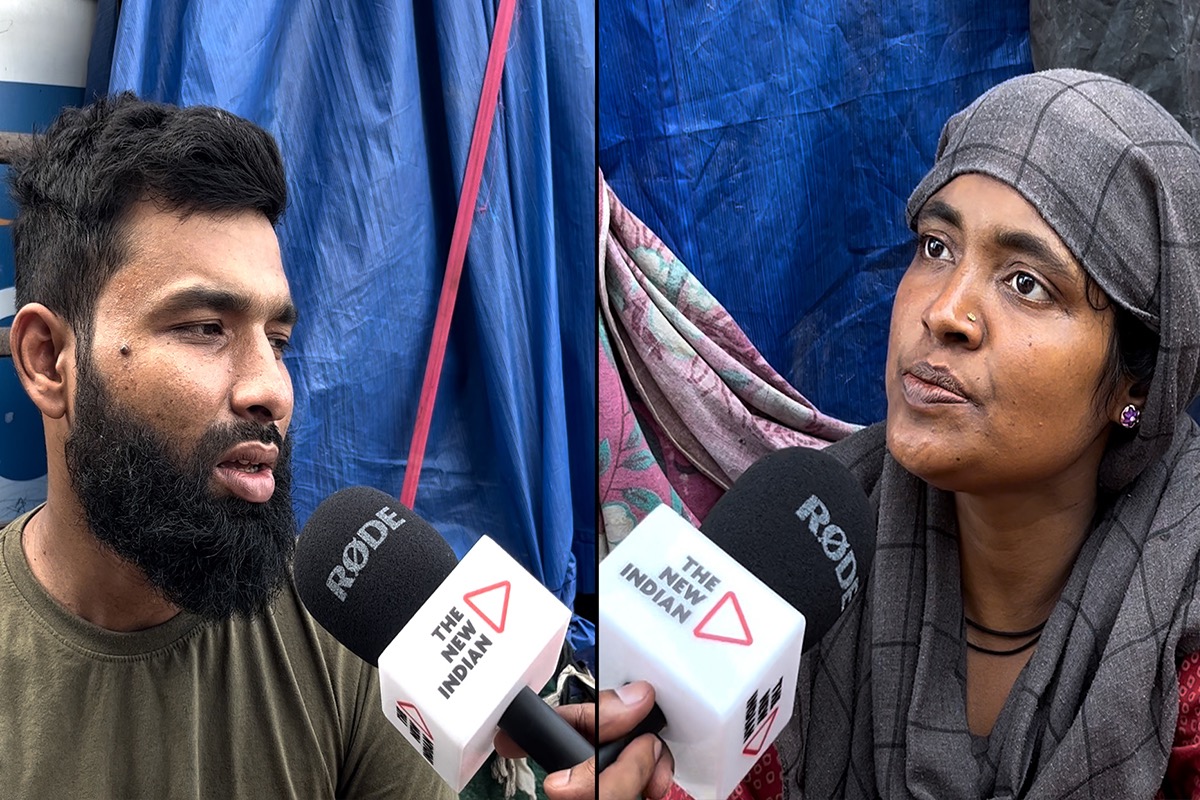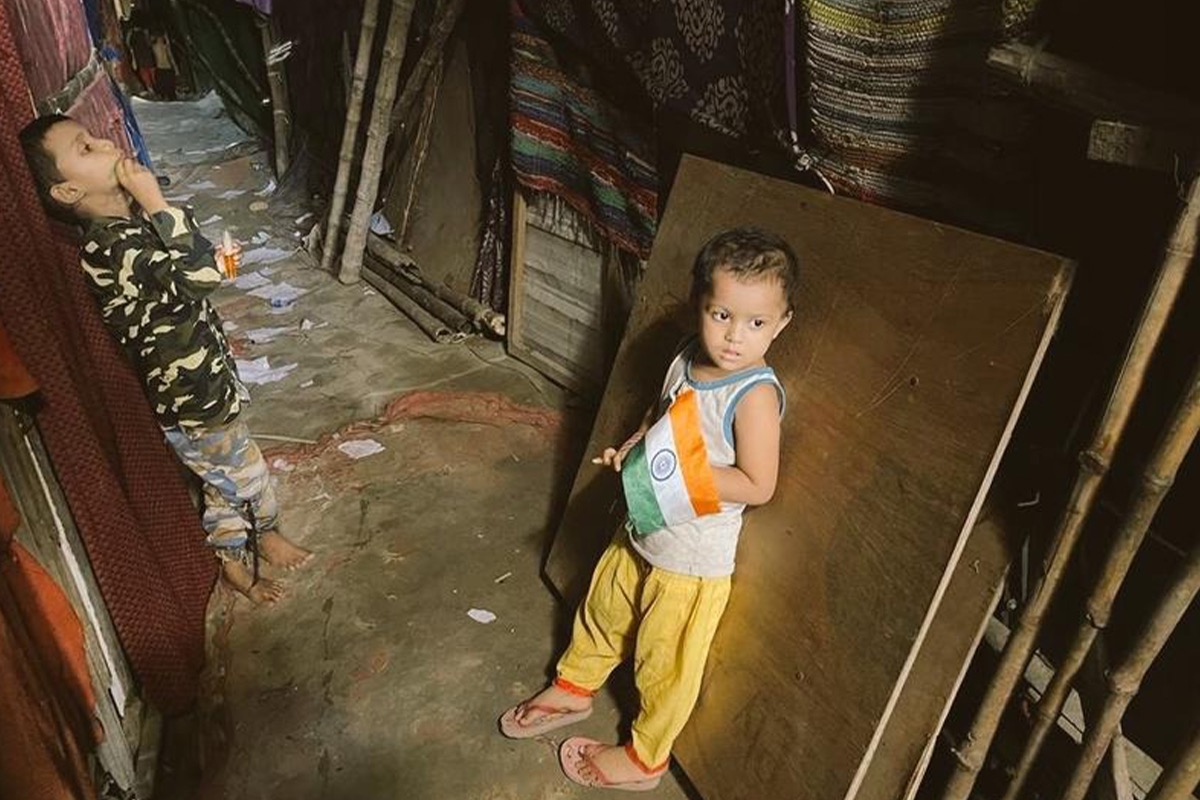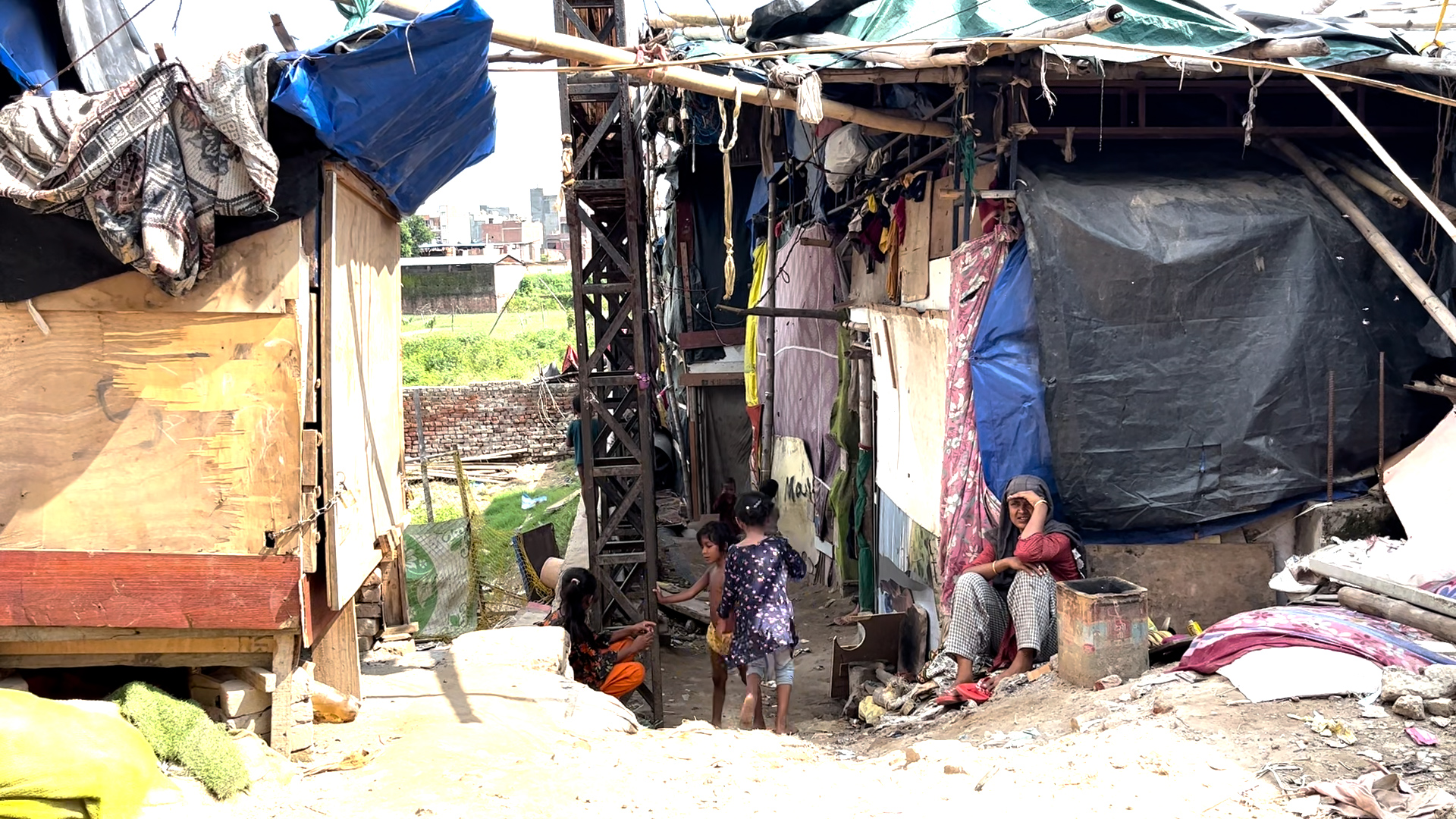Amid the political battle over the confusion of shifting Rohingyas into Economically Weaker Section (EWS) houses after converting them into detention centres, the refugees from Myanmar said they don’t want to stay in detention centres.
Of the 1,200 Rohingyas in Delhi, a total of 250 are living in Kalindi Kunj JJ Cluster in Sarita Vihar. They told The New Indian that they are ready to go anywhere in the world but are not yet ready to move to a detention centre.
READ MORE: We Can Go To Pakistan: Rohingyas In Kalindi Kunj Tell The New Indian
“We came to India because it was easy to come here from Bangladesh. We would have gone to Pakistan had it shared borders with Bangladesh. Even today, we are ready to go to even Pakistan if the government of Pakistan accepts us,” said 40-year-old Mohammad Johar.
The central government has already clarified that they never asked anyone to shift the Rohingyas into EWS flats. However, the Aam Aadmi Party-led Delhi government has claimed that the chief secretary of Delhi held a meeting where it was decided to allot the EWS flats to Rohingya Muslims as a detention centre.
“We can live anywhere in the world, but cannot live in the detention centre,” Mariam Khatoon, 36, told The New Indian. Mariam claimed that she had been living in Kalindi Kunj for more than 10 years now.
“My father was killed in Burma (Myanmar) when I was a teenager. Later, we ran away and came to India. India can accommodate anyone, as they have accommodated people from Pakistan and Bangladesh. Why can’t we be?” Mariam, who lives with her husband and three children, said.
“Videsh Mantralaya (foreign ministry) can talk to other countries, maybe some Muslim countries or European countries.” We are ready to go. But staying in a detention centre would not work. In Bangladesh, many of us (who came from Myanmar) live in detention centres. Their lives are useless,” Johar said.

Johar also said that while they faced no problems from people in the locality, they sometimes faced threats from people outside. “There is no problem in this locality. But sometimes people from outside the locality come and threaten us to leave the place,” he added.
The Rohingyas do get some help from certain non-governmental organisations (NGOs), with the Zakat Foundation giving them the land in Kalindi Kunj where the 250 families have built their huts. To sustain themselves, they do manual labour in the city. But their pitiable condition is hard to miss.
Fourty-five-year-old Mohammad Salimulla spoke about the difficulties they face at the cluster. “We are staying in a pathetic condition here. Water gets collected in our huts. No place to defecate. Somehow, we are managing things. With the help of NGOs, we are surviving, but there’s no help from the government.”
“If the government plans to give us houses to live in, it is good. But it should not be a detention centre. I would suggest the Indian government should send us to some other country,” added Salimulla.













Who cares if they’re wary? They do not belong in the country, as they entered illegally and India is not a signatory to the 1951 UN Refugee Convention. If they are so concerned about their condition, why do they bring more attention to themselves by participating in illegal activities, including terror and riots?